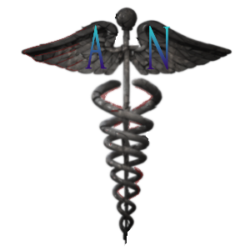What is home based care ?
Home-based care, also known as home care, refers to healthcare services and support provided to individuals in their own homes rather than in a hospital or other healthcare facility. It encompasses a range of medical, nursing, therapeutic, and support services delivered by healthcare professionals or trained caregivers. Home-based care is often chosen for individuals who prefer to receive care in a more familiar and comfortable environment or for those who may have difficulty accessing healthcare facilities. Here are key components and aspects of home-based care:
1. Services Provided:
- Nursing Care: Skilled nursing services, including wound care, medication management, and monitoring of vital signs.
- Personal Care: Assistance with activities of daily living, such as bathing, dressing, and grooming.
- Medical Monitoring: Regular monitoring of chronic conditions and overall health status.
- Palliative and Hospice Care: End-of-life care and support for individuals and their families.
- Home Health Aide Services: Non-medical assistance with personal care and light household tasks.
2. Benefits of Home-Based Care:
- Comfort and Familiarity: Patients can receive care in a familiar and comfortable environment, reducing stress and anxiety.
- Independence: Home-based care promotes independence and allows individuals to maintain a sense of control over their lives.
- Personalized Care: Services can be tailored to meet the specific needs and preferences of the individual.
- Cost-Effective: Home-based care can be more cost-effective than institutional care, particularly for long-term or chronic care needs.
3. Caregivers and Providers:
- Home Health Nurses: Registered nurses who provide skilled medical care at home.
- Home Health Aides: Trained caregivers who assist with personal care and basic medical monitoring.
- Therapists: Physical, occupational, or speech therapists who provide rehabilitative services.
- Hospice and Palliative Care Teams: Specialized teams providing end-of-life care and support.
4. Patient Eligibility:
- Individuals with chronic illnesses or conditions requiring ongoing medical care.
- Patients recovering from surgery or hospitalization.
- Elderly individuals with functional limitations.
- Individuals with disabilities or special healthcare needs.
- Terminally ill patients receiving hospice care.
5. Care Plan Development:
- A comprehensive care plan is developed based on the individual’s health needs and goals.
- The care plan is often created in collaboration with healthcare professionals, caregivers, and the patient.
6. Collaboration with Family:
- Family members often play a crucial role in providing support and may collaborate with healthcare professionals in the care process.
7. Regulatory Oversight:
- Home-based care agencies Acute Nursing are subject to regulatory oversight to ensure quality and safety standards.
Home-based care is a flexible and patient-centered approach that can adapt to the evolving needs of individuals. It provides a continuum of care that ranges from short-term recovery assistance to long-term management of chronic conditions, fostering the goal of improving overall health and quality of life.

